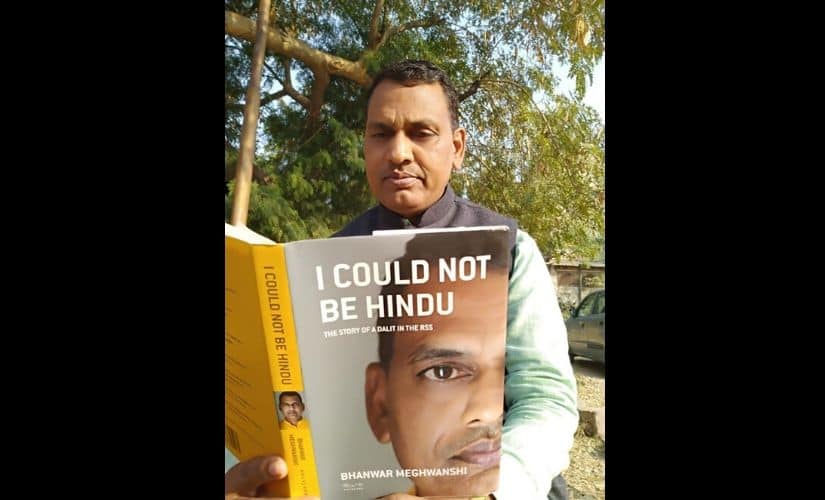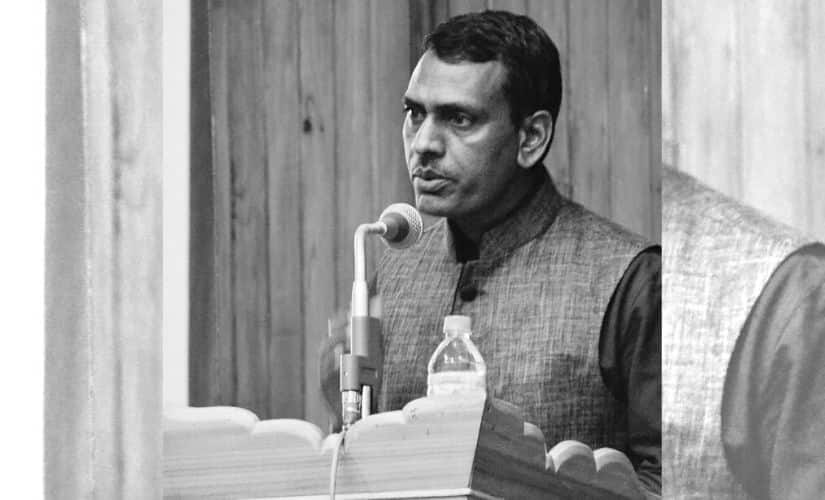In 1925, India stood at a 22 year-long-distance from its ‘independence’ from its colonisers, the British. But for the Dalits, the meaning of freedom was incomplete without the community breaking away from the clutches of Brahmanism. For them, the ‘real’ colonisation constituted the rules and diktats of Brahmanical society (caste system), under which they were treated as outcasts. For them, the real colonisers were and have always been Brahmins. Time and again, their literature speaks this truth. From the year 1925, as the decline of British rule started becoming a conceivable reality, the plan to colonise Dalits and consequently other lower castes, including Adivasis, was set in motion with the birth of the Rashtriya Swayamsevak Sangh (RSS). What had pushed the need for RSS, as felt by Brahmins, was the threat to their dominance in an independent nation, imagined on democratic, secular, and just principles, as prescribed by the Indian Constitution. From the beginning, the agenda of the RSS was to bring all Dalits, Adivasis, and other lower caste communities under the umbrella of ‘Hinduism’. These marginalised communities, however, had their own histories, deities, cultures, languages, and ideas of life. The RSS’s function was to examine and uproot said communities from their origins of being and belonging, and construct a new history for them that must support the dominance of Brahmins. Consequently, said upper-caste dominant community is now suddenly feeling threatened by the liberty, equality and fraternity constitutionally bestowed upon each citizen of the bygone-British India. Once you are uprooted from your history, and a new history built by the dominant caste is imposed on you, you are bound to hate your own kith and kin. While the British coloniser exploits your labour, the Brahmin coloniser exploits your history. With labour gone, you are filled with rage; but with history gone, you are filled with confusion. [caption id=“attachment_8141941” align=“alignnone” width=“825”]  Bhanwar Meghwanshi. Facebook/bm075[/caption] This new history is constructed around myths concocted by Brahmins, in which you are given a place in the ‘national imagination’, but in disguise. What now compels the Dalit, the Adivasi, and the lower caste youth to be a part of it is an infatuation of patriotism, a newly found enemy to accuse, fiery speeches, rhetoric of hate, and the ‘divine’ idea of working for the motherland, or the ‘matrubhoomi’. In his book The Wretched of the Earth, post-colonial theorist and philosopher Frantz Fanon explains that the “youth of a colonised country, growing up in an atmosphere of shot and fire, may well make a mock of, and does not hesitate to pour scorn upon the zombies of his ancestors, the horses with two heads, the dead who rise again and the djinns who rush into your body while you yawn.” The story of Bhanwar Meghwanshi, a Dalit youth who was associated with the RSS as a Karsevak, elucidates what Fanon tried to explain. But his account, as told in his book I Could Not Be Hindu: The Story of a Dalit in the RSS, is also one of breaking free from the mental colonisation by the Brahmins through the RSS. When your body is used for its labor to spread vicious propaganda, but you are rejected as a mind and a human being with dignity, it then generates strong repulsion for the propaganda you so far dedicated your life to. This experience is curiously revealing in a caste-based society, and one doesn’t ‘understand’ the gravity of caste discrimination unless is it ‘felt’ or ’experienced’. In case of the young Bhanwar Meghwanshi, the RSS had been an organisation with almost a sacred vision: the creation of the ‘Hindu Rashtra’. Through the propaganda, he was raised through his youth and made to feel like a ‘proud’ Hindu. It was only when the food from his home was refused and thrown away by upper caste-Brahmin Swayamsewaks, that he came to taste the poison of caste and discrimination in their entirety — the founding principle of the ‘Hindu Rashtra’ and the RSS. About this, he dejectedly writes: “For the first time in my life that day, I stepped aside from my Hindu identity and started seeing the world like a person from a lower caste. My troubled thoughts kept me awake all night, a night that felt endless.” Through his stint in the RSS, he was raised as a proud Hindu. However, later, he was viciously rejected as a Dalit; as the one unabatedly questioning the myths fed by the RSS to innocent Dalits, Adivasis and lower caste youth. There’s another instance in which his aspirations to become an RSS Pracharak was mutilated by asinine, baseless responses from Savarna leaders, and which revealed to him the hypocrisy of the organisation. This is exactly where we understand the functioning of caste in India. Thus far, the youth of the country across castes, reeling under Brahmin colonisation, was being manipulated by mythical and baseless answers from the RSS, which constantly preached about being an ‘Other Superior’, while simultaneously being made to feel exploited by enemies of other religions. Youth in India, scattered across hundreds of castes and never sharing a monolithic history, is now made to feel a ‘proud’ Hindu. Meghwanshi’s years in the RSS reveal this trajectory of creation of a new identity, which is then used to mobilise people as a singular force, and propagate the agenda of Brahmins. In a broader sense, after his bitter experience of being exploited by the RSS, he goes on to open up a dialogue with other Dalits from the organisation, only to realise that his distinct understanding of the prejudiced and vicious ways of the RSS is also shared by many from these castes. He felt he is not alone, when it comes to being cheated by the Sangh. He also discovers that discrimination in the RSS is not limited to him, but is a norm practiced in terms of treating people from marginalised and lower caste communities. Though many of them did not talk about their agonies, his comprehension of the RSS is shared by many. He says: “For the first time I saw that this was not my personal pain, but that of every swayamsevak of my community. The difference was that they were willing to accept it quietly, and I was not.” [caption id=“attachment_8141951” align=“alignnone” width=“825”]  Bhanwar Meghwanshi. Facebook/bm075[/caption] This, in turn, has given birth to a rebel within him. A Dalit, who’s experienced first-hand the agenda of the RSS and its lethality for Dalits, Adivasis and other lower caste communities, decided to fight against it. This fight is primarily shaped by the intellectual quest for his history, his vision to resurrect the history of Dalits, which is appropriated by the RSS, and making people aware of the scope of acquiring dignity and a human personality that is guaranteed by the Constitution of India. While facing countless threats from the RSS as he works tirelessly to fulfil Ambedkar, Phule, Kabir, and the Buddha’s visions, he, however, does not fall prey to regressive positions. But despite all of this, a vision of the world rooted in love seems like a definite possibility to him, as he invokes Kabir while writing about the idea of love in his life: “Of course, life is not simple, nothing is as straightforward as it might appear on the surface, there are ups and downs. It has sometimes felt as if we are life partners only in name, but the two and a half letters that Kabir says make up the word prem (dhai aakhar prem ka) - this love has always survived every trial. My life with Prem_, my marriage to her, has taught me that at any point in life one could meet someone, at any point lose someone, one never knows. It is all a matter of fortuity. But I am grateful for the countless blessings in my life, and my heartfelt desire is that there comes a day when the words ‘love’ and ‘life’ become synonymous.”_ Who else could understand the profound and true meaning of revolution, than the one whose idea of life is synonymous to love? — That too while fighting the most vicious enemy in the world: the colonisers of the mind — the Brahmins, the RSS.
The story of Bhanwar Meghwanshi, a Dalit youth who was associated with the RSS as a Karsevak, is one of breaking free from the mental colonisation by the Brahmins through the RSS. His fight against the Sangh, after having experienced their agenda against minorities first-hand, is primarily shaped by the intellectual quest for his history, and his vision to resurrect the history of Dalits, which has been appropriated by the RSS.
Advertisement
End of Article


)
)
)
)
)
)
)
)
)



